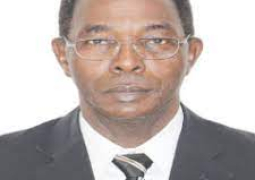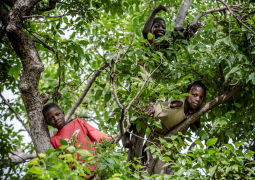These are troubling times in the governance of the country. The nation is always waking up to scandals and public outcries in recent times. To change a system that was considered bad has become a formidable challenge for the current leadership. Gambians are getting emotionally and mentally tired of unending crisis in the system.
The resignation of the Minister of Justice in the midst of the controversy surrounding the sale of the assets of Jammeh, the fire incident at the Ministry of Fisheries at a time questions were being asked about the number of fishing trawlers caught in our waters and the fines imposed on them, revenues generated from 2017-2020 at the Ministry, the silencing of the canons of justice in respect of the sale of diplomatic passports by various government officials, the seizure of drugs (cocaine) from the containers of a Lebanese business tycoon, the corruption case announced by the Health Minister in regards to COVID-19 funds, the rosewood timber smuggling revealed by the BBC, the alleged under-the-carpet awards of State contracts, the doubts surrounding the issuance of petroleum licenses to BP in the face of the license holders such as African Petroleum, Burried Hills, etc., the selective justice in the implementation of the Janneh Commission report, maladministration everywhere in the system, the crisis in the tourism sector, the rejection of executive decisions in courts and in parliament such as the YaKumbaJaiteh case, the first appointment of the Ombudsman, and the case of the Kharafi company in appeals court, the rejection of the extended state of emergency by Parliament, the long unending case of the NIA nine officers,poor and ineffective service delivery due to lack of national capacity, and the slow pace of the security and civil service reforms agenda. All these issues and many others are having a negative impact on the image of the government and the country. One wonders if the leadership is aware of the implications of the alleged and seemingly perpetuating lawlessness and politicisation of the administration.
The tragedy with Africa is that donor assistance is not seriously linked to transparency and accountability in the system of government to enhance economic development. When governments fall from power, the donor community/development partners exercise interest in the recovery of looted wealth from Africa. The African people would have been already dead from hunger, disease and poverty. In The Gambia, the people’s hopes for effective governance are rapidly fading away. Many Gambians are saying that things seem to be falling apart under the watch of the executive. It is said that some ministries are operating like their own government within a government with no oversight authority over them. Perhaps, Barrow is a democrat and has a vision to develop the country but he does not have the qualified trained manpower to implement his national development plan. However, in the view of many Gambians, the president is misreading the realities on the ground in terms of the politics, the economy, development and concerns about the non-performance of many sectors in the economy and about the mad rush for wealth and property by, allegedly, many state agencies and officials of government.
The need to revisit the overall state of the country and to change the face of government, which is very necessary at this moment in the transition, cannot be overemphasized. Those who put self-interest before national interest will not tell the President the whole truth about the state of affairs in the country. The former Head of State was, in part, politically sacrificed and betrayed by the people within the corridors of State House whose stories were more of building castles in the air than a reflection of the realities on the ground. The leadership must understand that it is not the media telling Gambians about the country; it is Gambians telling the media about the country and issues faced by society.
As I see it, the fundamental problems associated with these troubling times in governance are the over-elaboration of the transition programs, the ending of the coalition agenda, the fallout with the former party comrades in government, the dwindling respect for authority and rule of law, lack of capacity in the administration, procrastination and political sycophancy in the system, etc. An important missing point in governance was that in the absence of a coalition government, Gambians should have been given a government of national unity in which all regions, tribes, religions, sectors, and sexes are included. This would have ensured national unity and national cohesion. The outlook of government in New Gambia must necessarily reflect the sociological positioning and democratic realities of the country and people. Until we have an anti-corruption commission in place, or firm measures by government to redress the governance shortfalls, we shall continue to live in a climate of impunity.
By: D.M. Badjie
Political Scientist/Consultant





